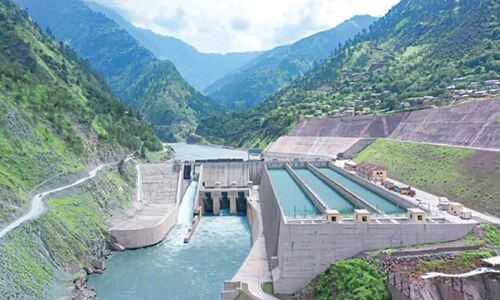KARACHI: Pakistan is fast losing its share in the traditional markets of leather and leather goods to regional countries because of higher cost of production.
For the last three years leather goods exporters have been expressing concern at the slide. The leather exports hover around $1.2 billion for the last few years whereas regional countries had been posting double-digit growth.
According to official data the leather and leather products exports recorded a fall of 6.23 per cent to $1.195bn in 2014-15 from $1.275bn in 2013-14. The trend intensified during the first five months (June-Nov) of this fiscal year as exports dipped by over 21pc.
In contrast, China’s leather export increased by 20pc, India’s 63pc and Bangladesh’s 100pc. Vietnam is earning $3bn from footwear exports annually with a projection of $7bn in next five years.
Pakistan’s share of 0.5pc in world market for leather and leather products is insignificant compared to China’s 19pc, Italy 9pc, Vietnam 4pc and India 2.5pc.
Talking to Dawn Pakistan Tanners Association (PTA) Chairman Gulzar Firoz lamented the government apathy. He informed that export of leather jackets declined by 19pc, gloves by 16.5pc, footwear by 31pc during the first five months of 2015-16.
He said leather industry contributes 2.6pc to GDP, 5pc to country’s total exports and provides jobs to over one million skilled and semi-skilled workers.He was upset over the extra load on the industry in the shape of high utility tariffs, taxes and levies.
He said the regional countries shielded their industry by raising the rate of duty drawback for exporters to neutralise the benefit of GSP+ facility to Pakistan.
Giving details Firoz said that whereas Pakistan gives around 1pc duty drawback rebate on all categories of leather exports, India, China and Bangladesh have allowed 6pc, 7.5pc and 125pc, respectively.
Similarly, he said, Pakistan gives 4.5pc rebate on export of leather garments whereas India allows 9.6pc, China 12.5pc and Bangladesh 12.5pc. In case of footwear exports India gives 9.1pc rebate, China and Bangladesh both give 12.4pc as against only 1.85pc being given by Pakistan.
He questioned that in the absence of a level-playing field, how Pakistani leather and leather goods exporters could survive. He further said that power tariff in India stands at 9 cents per unit and in China and Bangladesh at around 7-8 cents whereas the local industry has to pay 14 cents per unit.
“The cost of gas for Pakistani exporters is $6.7 per mmbtu, India $4, China and Bangladesh at around $3 per mmbtu. The labour cost is also high in Pakistan,” he added.
The PTA chairman rejected the general notion and claim of successive governments that the exports were zero rated and cited an example that when “the industry imports raw skin and leather it has to pay 3pc customs duty. In the past duty was at 1pc then increased to 2pc.
The country produces best quality of raw material (raw skin and leather) of cow, buffalo, goat and sheep, but stocks were not increasing due to decline in livestock. Currently, tanneries were operating under-capacity and had to import leather from Iran, Saudi Arabia, Spain, France and Africa to meet around 25pc of their total demand.
Firoz was highly critical that the government was also collecting revenue on import of raw material which had to be re-exported after value-addition and earn more foreign exchange.
Published in Dawn, January 10th, 2016














































Dear visitor, the comments section is undergoing an overhaul and will return soon.